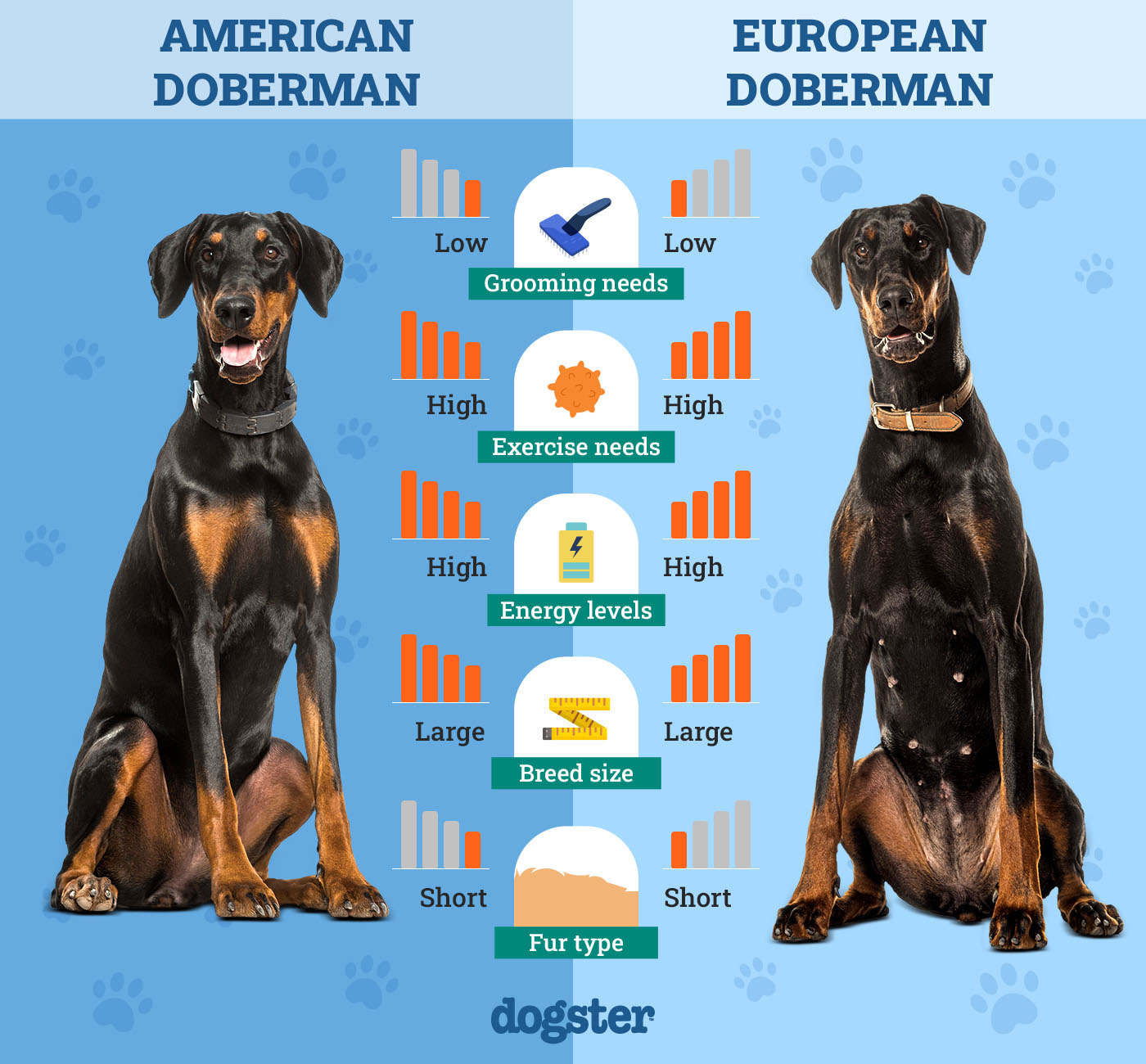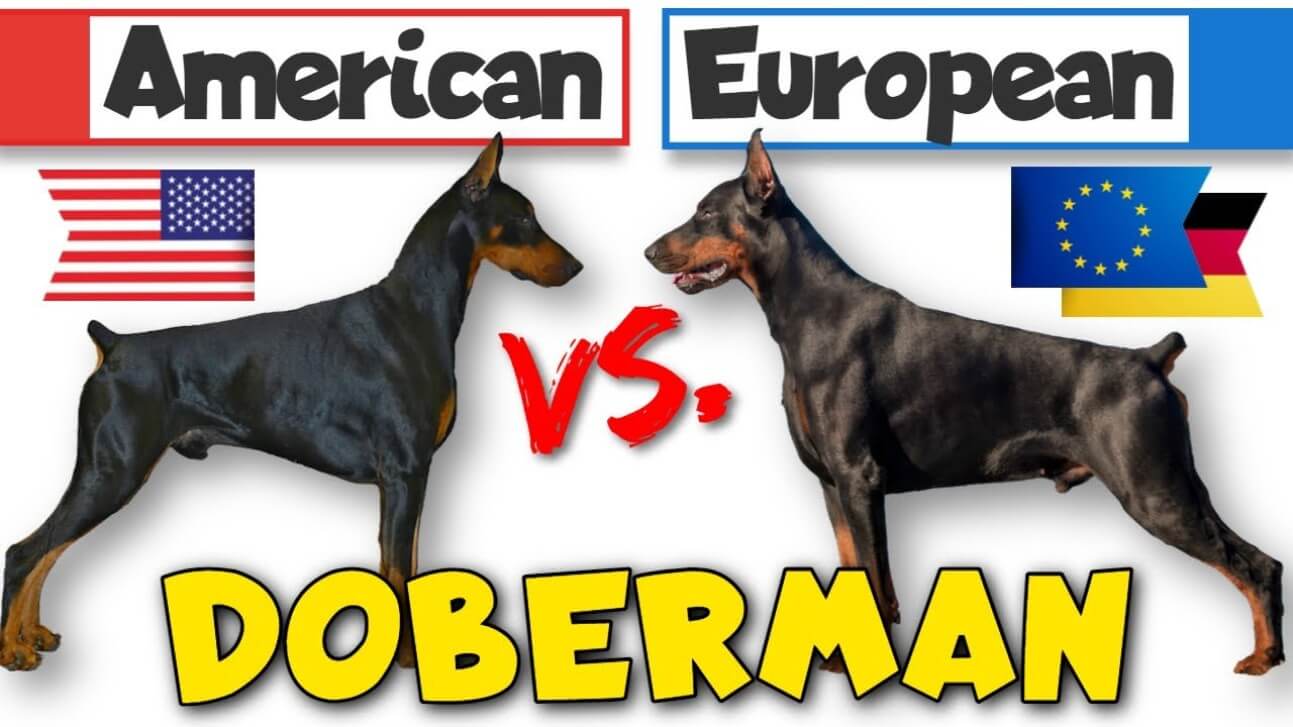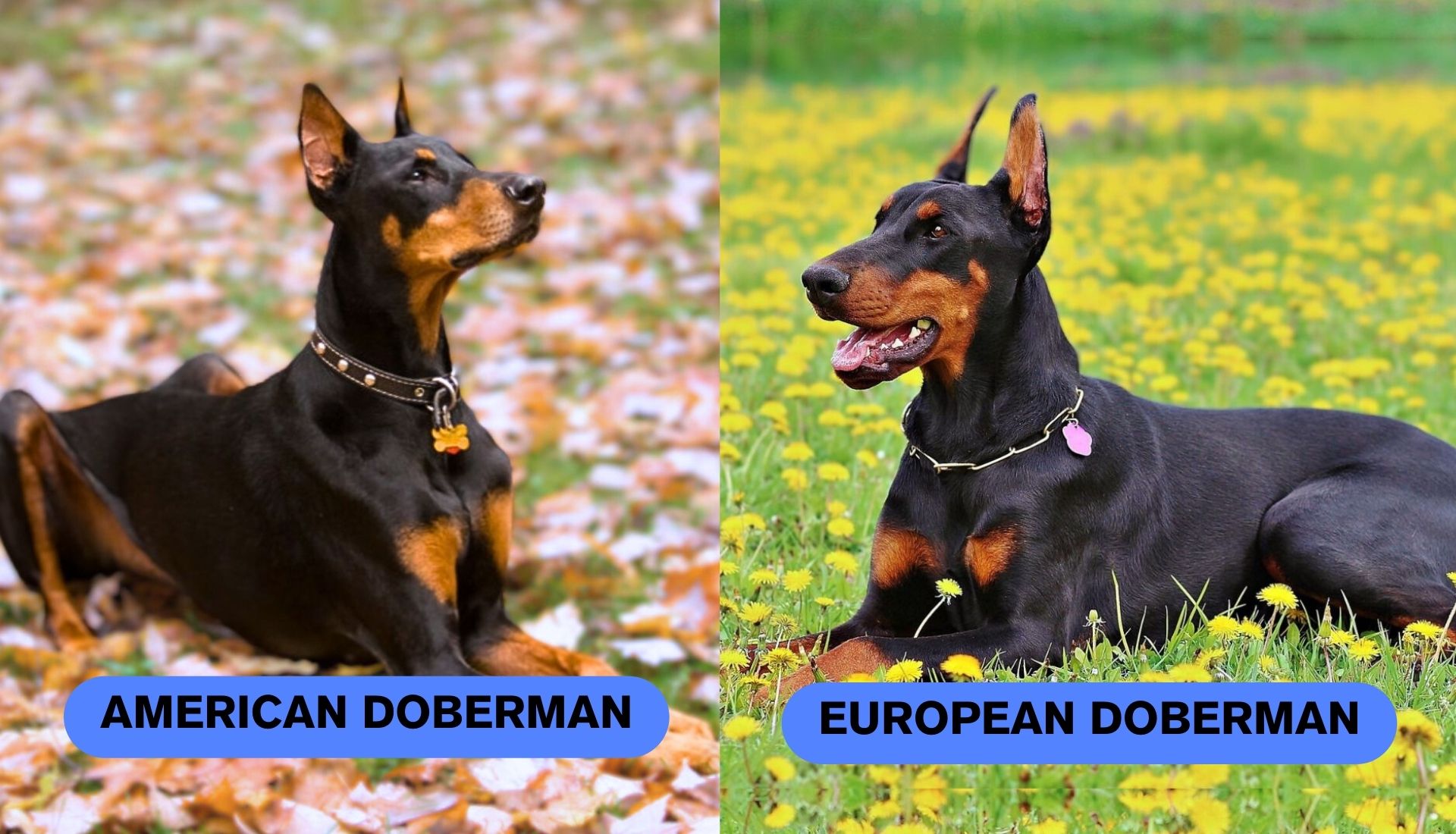So, you're thinking about getting a Doberman, huh? Excellent choice! These dogs are like the James Bonds of the canine world: sleek, intelligent, and always ready for action. But before you picture yourself suavely walking your Dobie down the street, let's talk about the European Doberman vs. the American Doberman. It's not quite East Coast vs. West Coast rap battles, but it's still a pretty interesting distinction.
The Tale of Two Dobies: A Continental Showdown
Think of it like this: You've got your sophisticated European cousin, sipping espresso and discussing philosophy, and then you've got your all-American pal, chugging a soda and ready to play some ball. Both are awesome, just in slightly different ways.
Size and Build: Who's Got the Guns?
Generally speaking, European Dobermans tend to be a bit more robust, often bigger boned and with a more muscular build. They're like the linebackers of the Doberman world.
American Dobermans are usually a tad leaner and more streamlined. Picture a wide receiver, all speed and agility.
These are just general tendencies, of course! You'll find exceptions to every rule. Don't be surprised if you see an American Doberman that could out-muscle a small car or a European Doberman that could win a marathon.
Temperament: Sweetness or Serious Business?
This is where things get really interesting. European Dobermans are often bred to maintain a stronger guarding instinct. They can be a bit more reserved with strangers and may take their watchdog duties a bit more seriously.
American Dobermans, in general, are often bred for a more even temperament, potentially making them more outgoing and friendly with new people. They are often described as more playful and eager to please.
That doesn't mean one is "better" than the other, it just means their temperaments are often a bit different. Early socialization is crucial for any Doberman, regardless of its lineage. Imagine raising a tiny, furry diplomat to navigate the human world with grace and confidence!
Health: The Inside Scoop
Unfortunately, both American and European Dobermans can be prone to certain health issues, like dilated cardiomyopathy (DCM). Responsible breeders on both continents are working hard to minimize these risks through careful genetic screening and breeding practices.
Do your homework! Look for breeders who prioritize health testing and are transparent about their dogs' health history. A good breeder will be happy to answer your questions and provide documentation. Think of it as doing your due diligence before investing in a very fluffy, four-legged stock option.
The Tail and Ears: A Matter of Preference
Traditionally, Dobermans had their tails docked and ears cropped. This was originally done for practical reasons, but nowadays it's largely a cosmetic preference. In many parts of Europe, tail docking and ear cropping are now illegal or heavily restricted.
European Dobermans are therefore often seen with their natural tails and ears. American Dobermans are still sometimes cropped and docked, depending on the breeder's preference and local laws.
Ultimately, whether you prefer the look of a cropped and docked Doberman or a natural one is a personal choice. Both are equally beautiful in their own way. Just remember that cropping and docking are surgical procedures that should only be performed by a qualified veterinarian.
Finding Your Perfect Doberman Companion
Okay, so how do you choose between a European Doberman and an American Doberman? Here's the secret: It all comes down to finding a reputable breeder and focusing on the individual dog's temperament and health.
Visit breeders in person if possible and spend time with their dogs. Observe their behavior and ask lots of questions. A good breeder will be just as interested in finding the right home for their puppies as you are in finding the perfect dog.
Remember that every dog is an individual. Just because a dog is a European Doberman doesn't automatically mean it will be a super-serious guard dog, and just because a dog is an American Doberman doesn't automatically mean it will be a non-stop cuddle machine. Personality is a spectrum!
Debunking the Myths: Separating Fact from Fiction
Let's bust a few myths while we're at it. Some people believe that European Dobermans are always more aggressive than American Dobermans. This is simply not true. Aggression is a complex behavior influenced by genetics, environment, and training.
Others believe that American Dobermans are always healthier than European Dobermans, or vice versa. Again, this is a generalization. Health depends on responsible breeding practices and individual dog's genetics, not just continent of origin.
The key is to do your research, find a responsible breeder, and focus on the individual dog's needs and personality. Don't get caught up in stereotypes!
Training and Socialization: The Keys to Success
No matter which type of Doberman you choose, training and socialization are essential. Start early and be consistent. Dobermans are intelligent and eager to learn, but they also need clear boundaries and positive reinforcement.
Enroll in obedience classes, expose your dog to different people and environments, and practice good leash manners. A well-trained Doberman is a joy to be around, while a poorly trained Doberman can be a handful (to put it mildly!).
Think of training as building a strong relationship with your dog. It's not just about teaching commands, it's about developing trust and communication.
The Doberman: A Loyal and Loving Companion
Whether you choose a European Doberman or an American Doberman, you're getting a dog that is capable of immense loyalty and affection. Dobermans are often described as "velcro dogs" because they love to be close to their people.
They can be wonderful family pets, especially when properly socialized with children. They are also intelligent and athletic, making them great partners for activities like hiking, jogging, and dog sports.
So, embrace the Doberman's unique personality and get ready for years of fun, companionship, and maybe a little bit of drool. These dogs are truly special, and they'll enrich your life in countless ways.
The Final Verdict: It's All About the Individual
In the end, the "European Doberman vs. American Doberman" debate is less about which one is "better" and more about understanding the nuances of the breed. Both types of Dobermans have their own unique qualities and can make wonderful companions.
Focus on finding a healthy, well-tempered dog from a responsible breeder. And remember that every dog is an individual with its own unique personality and needs.
So, go out there and find your perfect Doberman match! You won't regret it.





